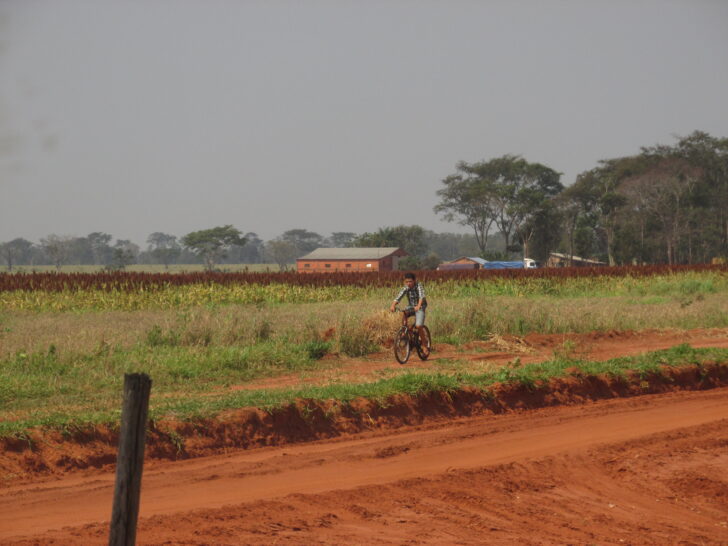In the run-up to the shareholders’ meeting of the German agrochemical company Bayer, an alliance of six civil society organizations from Argentina, Brazil, Paraguay, Bolivia and Germany is holding the company accountable for the serious impacts of industrial agriculture in South America. Based on extensive research and numerous interviews with those affected, the organizations are submitted a complaint with the OECD against Bayer AG. The allegation: Bayer is violating the OECD Guidelines for Multinational Enterprises by promoting an agricultural model in South America that leads to food and water shortages and pollution, massive deforestation, biodiversity loss, negative health impacts and land conflicts with local indigenous and peasant communities.
“The company has failed to properly address the severe human rights and environmental risks linked to its business model in the region. Neither the impacts of the use of genetically modified seeds and pesticides have been monitored, nor have effective measures been taken to prevent and mitigate them”, says Sarah Schneider, Expert on Agriculture and Global Nutrition at Misereor. On average more than 50% of the agricultural land in these countries is cultivated with genetically modified soybeans resistant to glyphosate. Bayer claims to be Latin America’s leader in the marketing of soy seeds and pesticides.
The complaint documents four specific cases that show the negative impacts of this agricultural model in areas where Bayer AG extensively markets its products. As part of the complaint, the Centro de Estudios Legales y Sociales (Argentina), Terra de Direitos (Brazil), BASE-IS (Paraguay), Fundación TIERRA (Bolivia), Misereor and ECCHR are calling on Bayer AG to make effective changes to its business practices in order to respect the rights of local communities and the environment.
“The OECD Guidelines are clear in establishing due diligence obligations for the downstream value chain, especially in cases where misuse of a product can be foreseen. Although the German supply chain law in its current version does not include this part of the value chain, Bayer must comply with the OECD Guidelines. We request that for GM soy and glyphosate-based pesticides, Bayer develop due diligence policies that are risk-based and consider the context in Latin America to contribute to long term solutions”, said Silvia Rojas Castro, Legal Advisor at ECCHR.
The OECD National Contact Point now has three months to decide on the admissibility of the complaint and thereby facilitate mediation between the affected parties and the company. The organizations expect Bayer to respond to the complaint and actively take part in finding solutions for the identified problems.
Complete complaint document available here.

